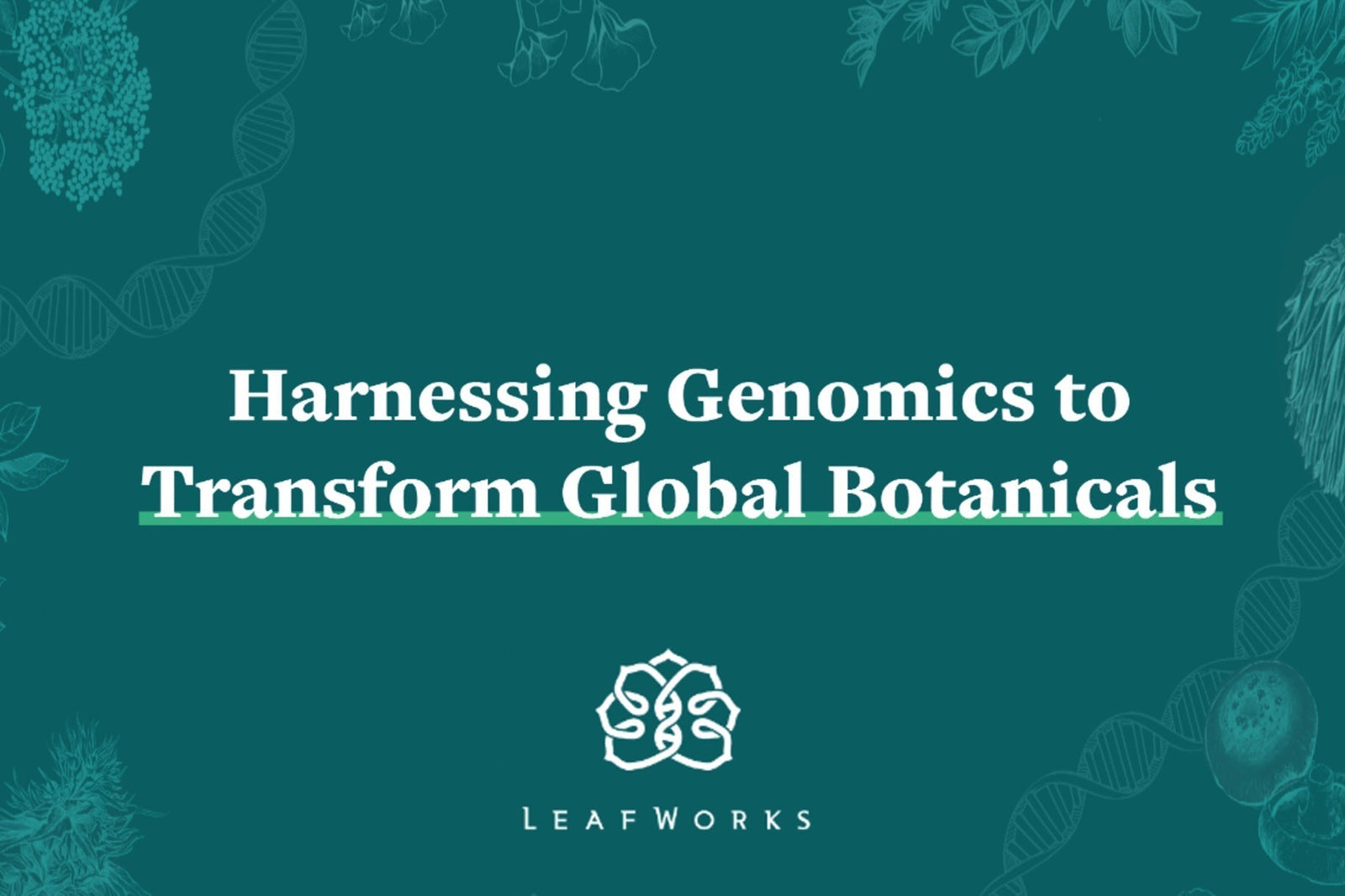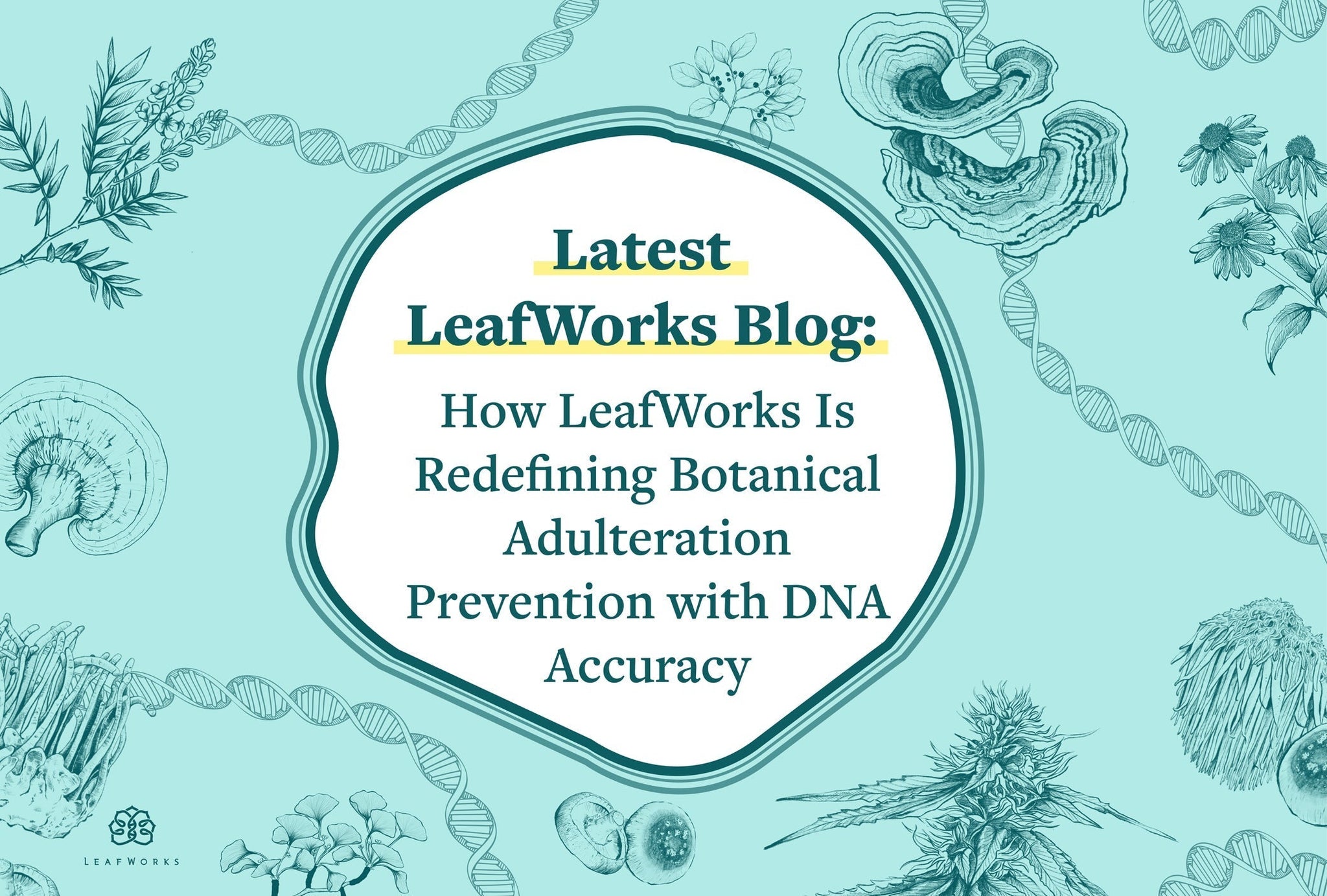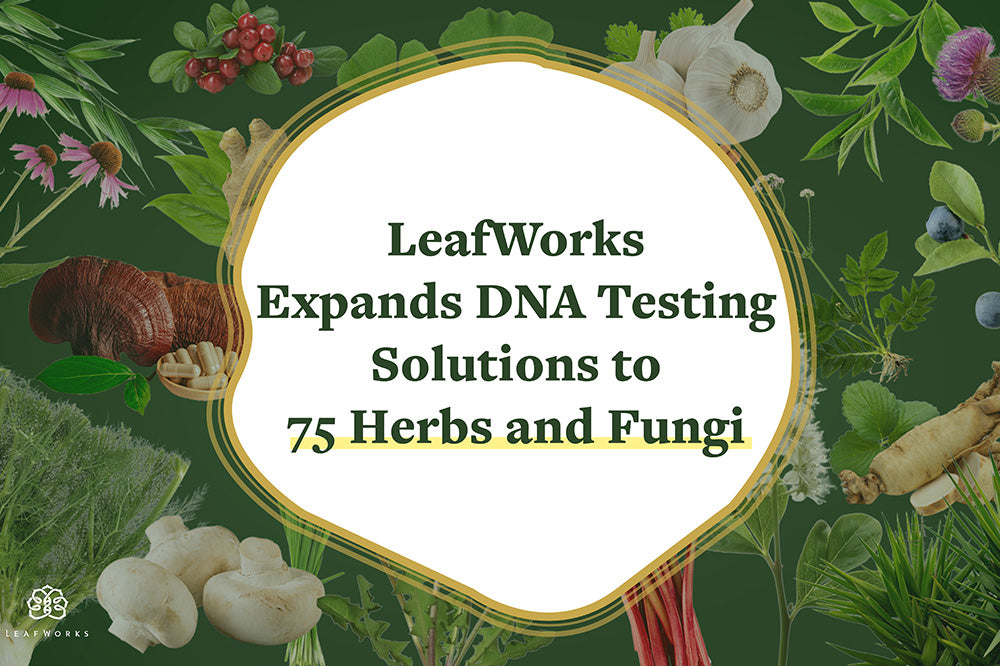
Redefining DNA Testing with LeafWorks: A New Era of DNA ID Solutions
A Note From Our Chief Scientific Officer, Dr. Kerin Law
On behalf of my colleagues at LeafWorks, I am pleased to announce that we have launched DNA ID tests to validate species identity for mushroom products—including foods, dietary supplements and raw materials. We’ve done our due diligence, put in a lot of hard work and employed our robust approach to test development to bring never-before-seen, species-specific mushroom DNA tests to your door.
We’re especially excited because we know that new testing methods can broaden opportunities, solve problems and lead to new innovations. In short, they are good for everyone. Allow me to take this opportunity to share our perspective on DNA testing in this exciting field.
No Single Test Rules Them All
Everyone within our organization wholeheartedly agrees with this sentiment and it guides us as we operate within the natural products field. DNA testing is a powerful tool for species identification and is highly complementary to chemistry testing. While DNA will never replace the need for chemistry testing for quality and compliance validation, we can all agree that complementary or orthogonal methods add power to any given method of analysis. DNA testing is a great method to add to that power. We’re here to supplement the chemistry tests you do on your products and can’t wait to serve you.
Where Does DNA Testing Fit In?
DNA testing is a great option. As with any process, chemistry-based methods cannot do everything perfectly in all scenarios, and that opens the door to other testing methods that can be more targeted or more appropriate for the task at hand. For example, there are times when chemistry testing for a reliable result is difficult, such as when species have overlapping chemistries with others, or where chemistries are highly variable depending on cultivation method, environment or curing process. Plus, DNA testing is great for testing blends and quantitative analysis such as ratio verification. That is an area where DNA testing can be the most effective tool in your tool chest.
New Methods Are Designed to Solve Persistent Problems
New methods are just that—new options that result in new opportunities. Can they be effective and work well? Yes. Is it a given? No. That’s why we do our due diligence and are extremely careful in how we develop and validate a test. That’s also why it’s critical to try new methods to see how they might satisfy a client’s particular needs. The development of new methods simply equates to more potential tools at the industry’s disposal that might provide real solutions to difficult problems.
Our Mantra For Test Development: Quality in Equals Quality Out
When developing a quality test that is accurate, it is imperative to use authenticated samples, such as Certified or Botanical Reference Materials, and at LeafWorks, our tests are always based on authenticated reference materials. It’s been clear for years that it is not safe to rely solely on public databases to do DNA testing because they are often corrupted with erroneously labeled sequence data and even if a queried species is absent from the database you can still get a result, albeit wholly erroneously. This is especially true in medicinal plants, congeners of highly traded species, or adulterants. That’s one reason why we’ve partnered with the Missouri Botanical Garden and other leading herbaria and fungaria as well as cultivators in natural products for the past five years to make sure we source the reference material needed for proper test development.
There’s Nothing Simple About Our Specially Crafted DNA Tests
Test development is like cooking: Slow roasting your turkey dinner can sometimes lead to the juiciest outcome. That’s why we take the time to build our tests to validate species identity with reliability. We carefully develop our experimental approach, curate the requisite reference material, and then test, test and test some more across an array of samples within our inclusivity and exclusivity panels at varying levels of DNA concentrations and with a diversity of matrices. There’s nothing academic or simple about the process. It is practical. It is deliberate. It is complex. It takes time to develop, but once we have it, it is a masterpiece we can be proud of.
Our Tests Are Affordable
LeafWorks is solving problems with complex technologies, but luckily not expensive ones. qPCR assays are rapid and affordable yet remain highly sensitive. Our assays are on par or less expensive than the average chemistry test, and certainly cheaper than any poorly-designed DNA tests that query public databases. Plus, as a small business, LeafWorks is always willing to work to support other small businesses if the price point is an issue.
Methods Used by Previous DNA Testing Companies Are Unsuitable
We’ve been saying this for a while: The way DNA testing has historically been done in the natural products industry has been with an incorrect or inappropriate approach in an effort to solve the question at hand. Other DNA testing companies have closed their doors because they relied on public databases and low sampling, which doesn’t work. Dealing with their poor approach is how our CEO started her career—by troubleshooting their confusing and erroneous reports for natural products companies. A decade ago we were concerned that what some other companies were doing wouldn’t work, and that’s the primary reason we didn’t race to make blanket solutions that we knew would fail. It is why we have taken years to build our pipelines, infrastructure and reference material collections, and why we are tackling species identity one species at a time.
How Did We Design Our Test?
With care and expertise. For each target species, LeafWorks’ team of Ph.D.s researched the biology, population genetics, taxonomy, commercial uses, cultivation zones, life stages traded, matrices involved, common adulterants and relevant sister species of every target mushroom to amass appropriate and robust inclusivity and exclusivity panels. The team sourced diverse reference material for each species in each panel from reputable, authenticated sources and deep sequenced the samples. Diversity within and across species was a priority in collecting our reference materials. We then used our over 100+ years of collective experience in genetics and veteran bioinformatic pipelines—that have been extensively validated over eight years in some of the most genetically complex crops in commerce—to identify species-specific DNA markers that are present in our inclusivity panel and absent in our exclusivity panel.
Just for good measure, we also blasted these markers to the entire NCBI universe just to make sure that literally nothing that has ever been sequenced for any sample on Earth matches except the target species. Was it a lot of work? Yes. Are we proud? Most definitely. That’s why we have started preparations for the AOAC validation process.
Thank You From Our Small Business!
Lastly, we just want to thank everyone who has started testing with us and been open to trying a new approach to DNA testing. We know a lot of people have been burned by bad actors in the past, and we are excited to offer a new, better solution moving forward. LeafWorks is a small business doing good science and our team is small but mighty, led by Ph.D.s in plant biology, genetics and genomics trained for and seasoned in DNA test development in natural products. We thank you for trusting us to validate your mushroom products. Learn more at https://leafworks.com/pages/functional-mushrooms.
Interested in Partnership or Trying Us Out?
Are you a third party lab interested in boosting revenue alongside your chemistry testing to support clients interested in complementary methods? Are you a product maker using functional mushrooms looking for quality control? We want to work with you! The LeafWorks® Mushroom DNA ID Tests are available for ordering via our website or as third-party sales. Partner with LeafWorks and see how authenticity is in our DNA.


